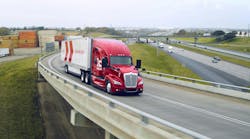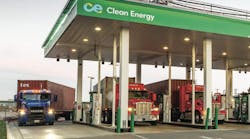Many events that appear momentous as we first experience them often fade in importance with the perspective of time, but in the case of last year’s terrorist attacks, time has only sharpened the impact. Fittingly, we are marking the date with by speeches, memorial dedications, national retrospection, apprehension and a large dose of collective mourning.
It might also be an appropriate time to identify the real on-going effects of the attacks and put to rest some that were feared but never materialized.
In the never-materialized category I’d start with severe economic dislocation. Signs of the recession and stock-market tumble were already clear before 9/11, and the causes can be laid to fundamental business failures rather than the shock of a terrorist attack. The uncertainty fostered by the attacks certainly didn’t do anything to soothe jittery investors, but at this point the funk infecting the stock markets is self-induced by greedy participants who think the game is finally up.
For trucking, at least the for-hire portion of it, recent economic news has actually been encouraging. Second quarter results from many carriers show increases in revenues, income and freight volume over last year, and there’s some hope that business spending will pick up in the second half of the year to maintain those levels if consumer spending begins to drop off a bit.
Across the industry, cost containment efforts also seem to remain effective, in part because fuel prices remain stable and inflation remains low. A jump in equipment cost with the introduction of low-emissions diesels will no doubt hurt those efforts, but that certainly has nothing to do with 9/11.
Other early fears that have proven overblown are, blessedly, more attacks motivated by the success of the plane hijackers, massive transportation delays at our borders due to an increase in security inspections, and devastating productivity losses caused by disruptions to our transportation infrastructure.
So what long-term effects can we link to last September’s attacks? A sharp increase in political rhetoric and a re-evaluation of the country’s friends and enemies, for sure, have been among the most visible general effects, along with the appearance of increase airport security.
Looking at trucking, though, I think the real impact has yet to be felt. The new Transportation Security Administration has mentioned trucking, but the more visible airline industry is currently consuming most of its energy. Other government regulators and enforcement agencies certainly recognize the potential security risks posed by terrorist’s access to trucks. However the sheer magnitude of the industry with its 11 million commercial vehicles and its central role in our economic health won’t accommodate quick fixes or poorly conceived experimentation.
So when it comes to trucking security what we have right now is a good deal of discussion and little concrete activity, which is probably a good thing. But sooner or later, that will change and fleets will be expected to value security efforts as highly as safety, environmental concern and their other good citizen mandates.
Accepting that responsibility willingly and with determination to do the job well would be trucking’s best memorial to Sept. 11.


